
Osu: The Heartbeat of Accra
Osu, often referred to as the 'Oxford Street' of Accra, is a vibrant and dynamic neighbourhood that offers a blend of modernity and traditional Ghanaian culture. This bustling part of the city is famous for its lively streets lined with a mix of high-end boutiques, street vendors, and an array of dining options that cater to both local and international palates. A walk down Oxford Street in Osu is an experience in itself. You'll find everything from trendy fashion stores, electronic shops, and bookstores to charming craft markets where you can pick up unique souvenirs. The neighbourhood is also home to several historical landmarks and cultural centres, such as the Osu Castle, which offers a glimpse into Ghana's colonial past. For food enthusiasts, Osu is a culinary paradise. You can enjoy traditional Ghanaian dishes like jollof rice and kelewele at local eateries, or opt for international cuisine at one of the many upscale restaurants. The nightlife in Osu is equally captivating, with numerous bars, clubs, and live music venues that keep the area buzzing until the early hours of the morning.
Local tips in Osu
- Visit the Osu Castle for a historical tour and breathtaking views of the coast.
- Explore the local craft markets for unique souvenirs and handmade goods.
- Try traditional Ghanaian dishes at local eateries for an authentic culinary experience.
- Stay alert at night and keep your belongings secure, as the area can get very crowded.
- Use local taxis or ride-sharing apps for convenient and safe transportation.
Osu: The Heartbeat of Accra
Osu, often referred to as the 'Oxford Street' of Accra, is a vibrant and dynamic neighbourhood that offers a blend of modernity and traditional Ghanaian culture. This bustling part of the city is famous for its lively streets lined with a mix of high-end boutiques, street vendors, and an array of dining options that cater to both local and international palates. A walk down Oxford Street in Osu is an experience in itself. You'll find everything from trendy fashion stores, electronic shops, and bookstores to charming craft markets where you can pick up unique souvenirs. The neighbourhood is also home to several historical landmarks and cultural centres, such as the Osu Castle, which offers a glimpse into Ghana's colonial past. For food enthusiasts, Osu is a culinary paradise. You can enjoy traditional Ghanaian dishes like jollof rice and kelewele at local eateries, or opt for international cuisine at one of the many upscale restaurants. The nightlife in Osu is equally captivating, with numerous bars, clubs, and live music venues that keep the area buzzing until the early hours of the morning.
Iconic landmarks you can’t miss
Kwame Nkrumah Memorial Park & Mausoleum
Explore the legacy of Ghana's first president at the Kwame Nkrumah Memorial Park & Mausoleum, a serene tribute to independence and Pan-Africanism in the heart of Accra.

W.E.B Du Bois Memorial Centre for Panafrican Culture - Ghana.
Discover the rich history and cultural significance of the W.E.B. Du Bois Memorial Centre, a hub for Panafrican culture in the heart of Accra, Ghana.
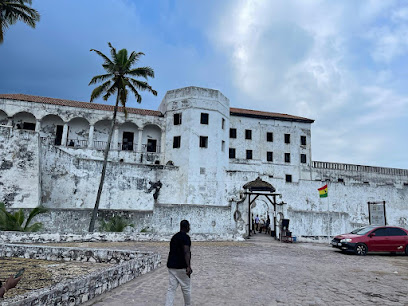
National Museum of Ghana
Discover Ghana's rich cultural heritage at the National Museum in Accra, showcasing diverse traditions, artistry, and historical evolution from prehistoric times to independence.
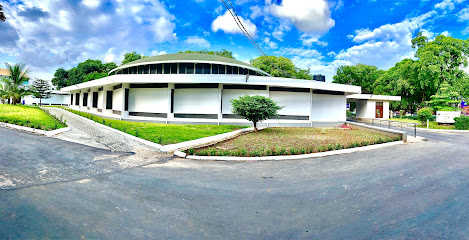
Osu Castle
Explore Ghana's captivating history at Osu Castle in Accra, a UNESCO World Heritage Site, and delve into centuries of trade, colonial rule, and the transatlantic slave trade.
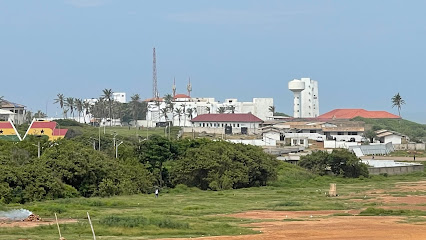
Osu Night Market
Experience Accra's vibrant nightlife and culinary scene at Osu Night Market, a bustling hub of Ghanaian street food, local crafts, and lively music in the heart of the city.
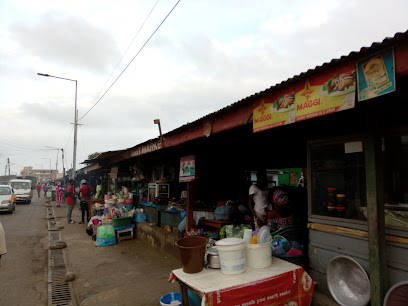
Independence Arch
Discover the Independence Arch in Accra – a monumental tribute to Ghana's freedom, rich in history and surrounded by vibrant culture.
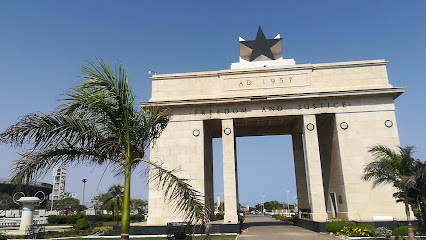
Akola Boni Park
Experience the tranquility and lush landscapes of Akola Boni Park, a serene oasis in the vibrant city of Accra, perfect for relaxation and recreation.
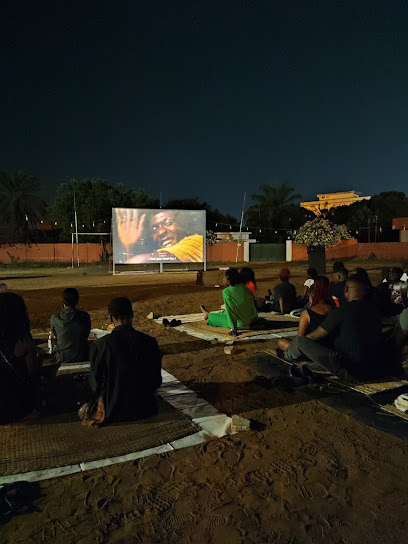
Independence Square | Black Star Square
Experience Ghana's rich history and national pride at Independence Square in Accra, a monumental landmark symbolizing freedom, unity, and the spirit of the nation.
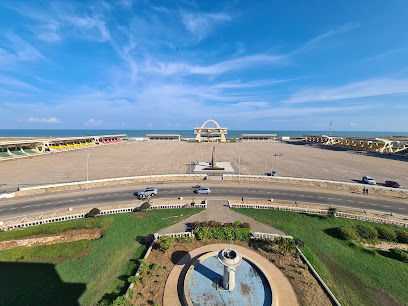
Statue Of Kwame Nkrumah
A towering tribute to Ghana's founding father, Kwame Nkrumah, symbolizing independence, unity, and the enduring spirit of Pan-Africanism in the heart of Accra.
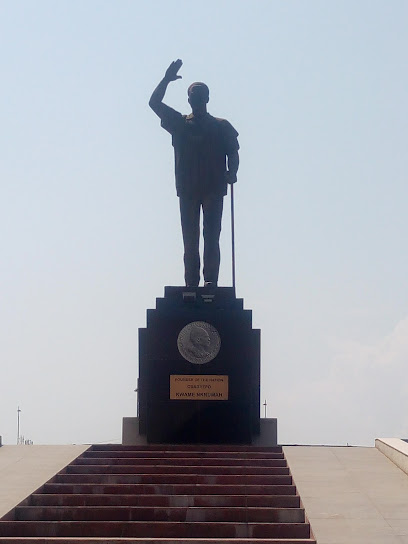
Independence square
Experience Ghana's vibrant history and national pride at Independence Square in Accra, a monumental landmark showcasing the nation's journey to freedom and unity.
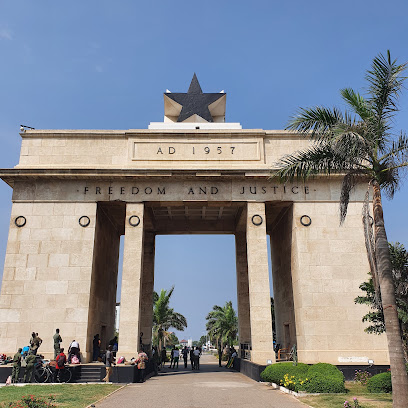
Osu beach
Experience the vibrant coastal culture of Accra at Osu Beach, a lively destination offering relaxation, recreation, and authentic Ghanaian flavors in the heart of the city.
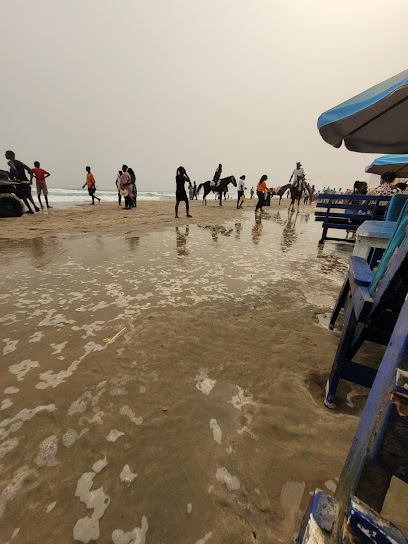
Liberation Day Monument
A solemn tribute to Ghana's veterans and a powerful symbol of the nation's unwavering pursuit of freedom, the Liberation Day Monument stands as a testament to courage and sacrifice.
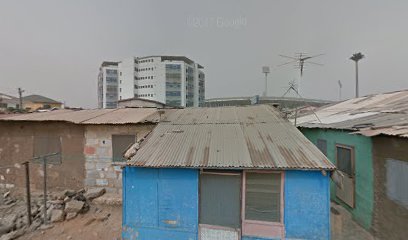
Emmanuel Villa Osu
Explore Emmanuel Villa Osu, a stunning historical landmark in Accra, where colonial charm meets Ghana's vibrant culture and rich heritage.
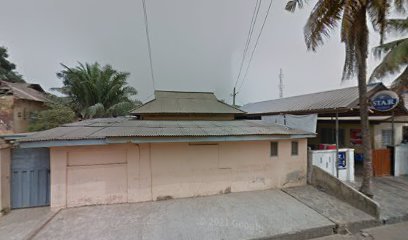
WORLD WAR MONUMENT
Explore the poignant history of Ghana's military contributions at the World War Monument in Accra, a tribute to bravery and sacrifice.
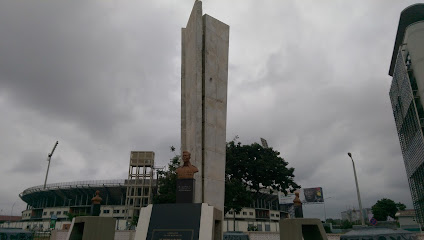
Unmissable attractions to see
Centre for National Culture
Explore the vibrant heart of Ghana at the Centre for National Culture, where art, tradition, and community come together in Accra.
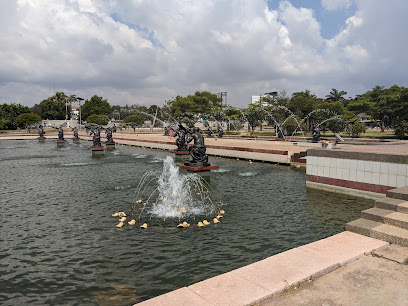
W.E.B Du Bois Memorial Centre for Panafrican Culture - Ghana.
Explore the legacy of W.E.B. Du Bois at the Memorial Centre, a cultural landmark celebrating Pan-African heritage and history.
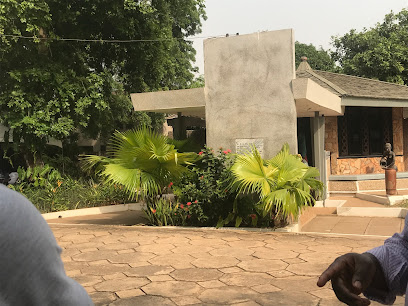
Asomdwe Park
Discover tranquility at Asomdwe Park, a serene memorial park in Accra dedicated to Ghana's late President John Atta Mills.
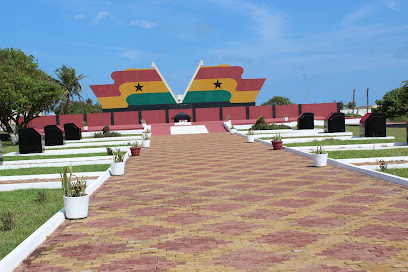
Osu Castle
Explore the rich history of Ghana at Osu Castle, a museum that narrates the tale of colonial times and the resilience of its people.
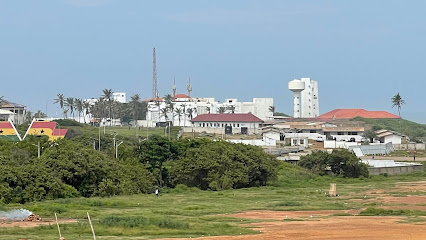
Essential places to dine
The Buka Restaurant, Osu, Accra
Experience authentic West African cuisine at The Buka Restaurant in Osu, Accra – where tradition meets flavor.
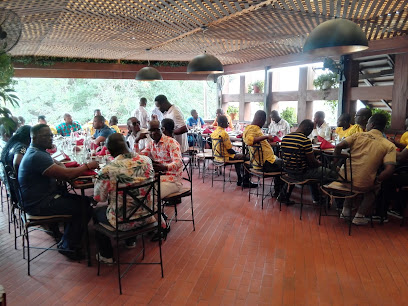
Pinocchio & La Piazza Restaurants (OSU)
Discover authentic Italian dining and delightful ice creams at Pinocchio & La Piazza in Osu, Accra - where flavor meets tradition.
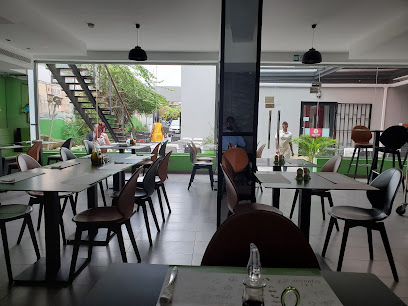
Noble House - Osu
Experience authentic Chinese cuisine at Noble House - Osu in Accra; a must-visit destination for food lovers seeking quality and flavor.
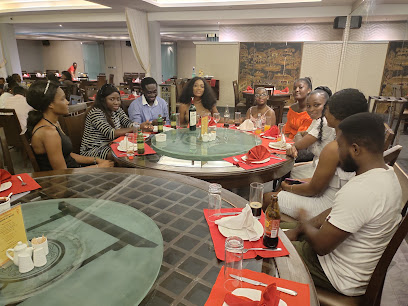
POMONA
Experience authentic Italian cuisine at Pomona in Accra - where every dish tells a story of flavor and tradition.
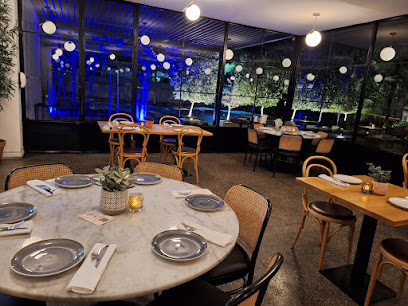
Heritage Indian Restaurant
Experience authentic Indian flavors at Heritage Indian Restaurant in Accra - where every dish tells a story of tradition and taste.
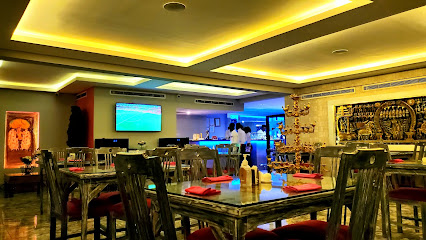
Treehouse Restaurant
Discover culinary delights amidst nature at Treehouse Restaurant in Accra – where every meal is a celebration of flavor and tranquility.
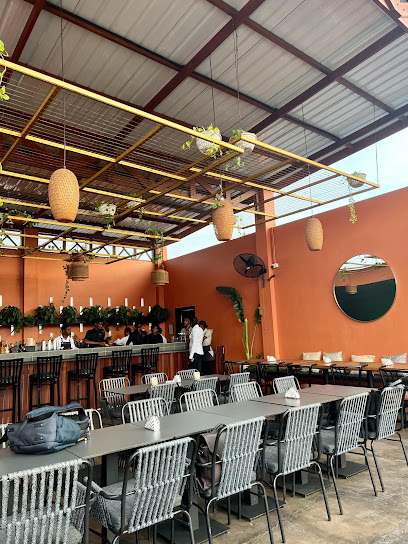
THE MIX RESTAURANT ACCRA
Experience authentic Ghanaian flavors at The Mix Restaurant in Accra – where tradition meets modern culinary artistry.
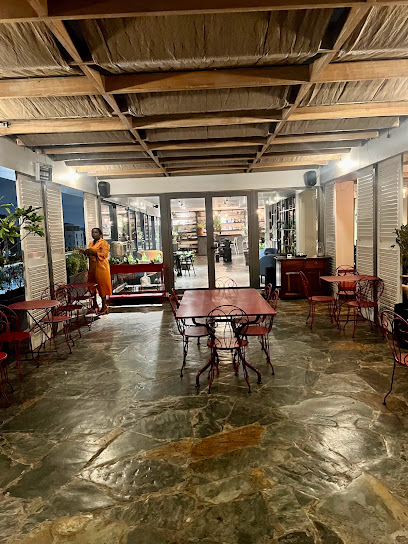
Rina's Restaurant
Discover authentic Ghanaian flavors at Rina's Restaurant in Accra’s vibrant Oxford Street Mall.
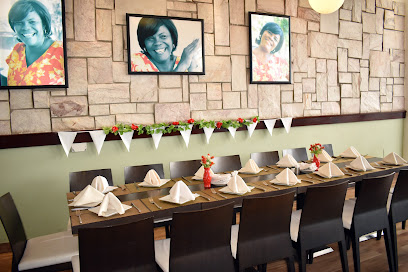
Peterpan - Osu
Experience the best of Ghanaian and international cuisine at Peterpan - Osu in Accra's vibrant Osu district.
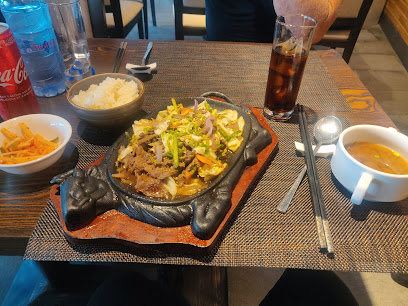
Wine And Dine
Discover the culinary treasures of Accra at Wine And Dine—where local flavors meet international cuisine in a vibrant setting.
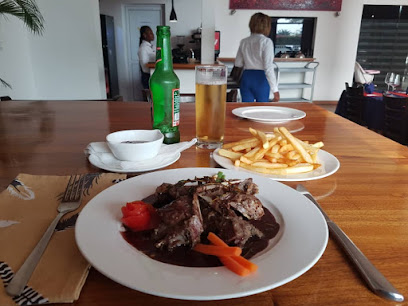
Markets, malls and hidden boutiques
Woodin Boutique - Osu
Discover unique Ghanaian fashion and vibrant textiles at Woodin Boutique in Osu, Accra - a must-visit for every fashion lover!
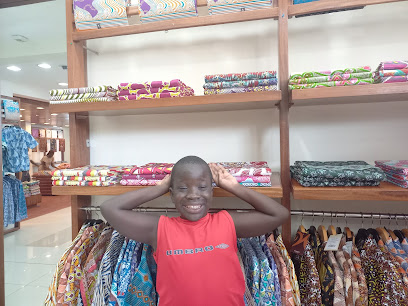
The Shop Accra
Explore the vibrant world of unique gifts and local treasures at The Shop Accra, your go-to destination in the heart of Ghana's capital.
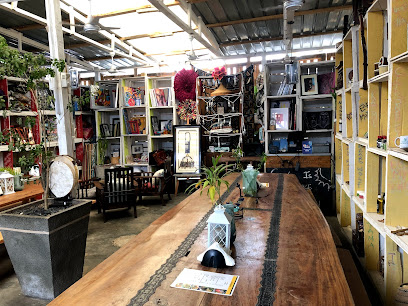
Bright kusi Ghana
Explore the vibrant culture of Accra at Bright Kusi Ghana, your go-to general store for local treasures and everyday essentials.
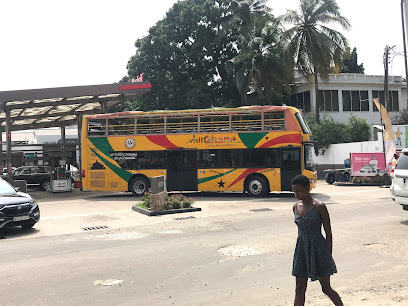
Treasure Ghana
Experience the essence of Ghanaian fashion at Treasure Ghana, where vibrant styles and cultural heritage meet in a delightful shopping adventure.

Kash Shops
Explore the vibrant styles of Ghanaian fashion at Kash Shops in Accra, a premier destination for clothing and accessories.
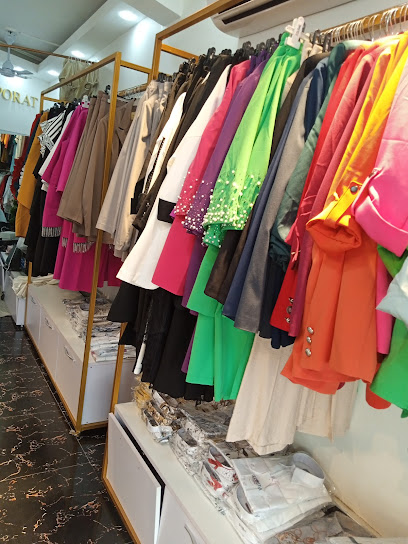
Trendy Avenue Boutique
Explore unique fashion and accessories at Trendy Avenue Boutique in Accra, where local artisans meet contemporary style.
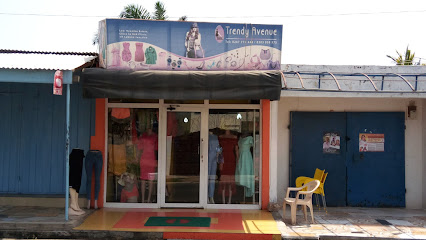
Karisma Boutique Ghana
Explore the vibrant world of textiles at Karisma Boutique Ghana, where every fabric tells a story of culture and artistry.
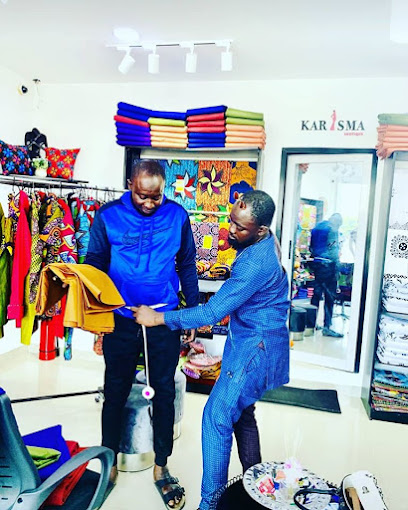
Wrap Up
Discover unique souvenirs and local crafts at Wrap Up, the premier gift shop in Accra that celebrates Ghanaian culture.
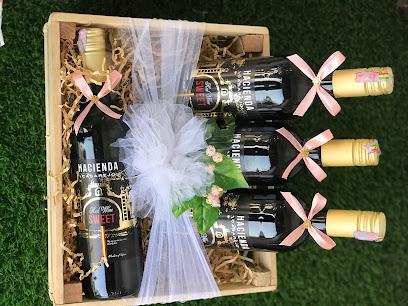
LOOK NICE COLLECTION OSU
Explore the vibrant fashion scene at LOOK NICE COLLECTION OSU in Accra, where local creativity meets contemporary style in a chic boutique setting.
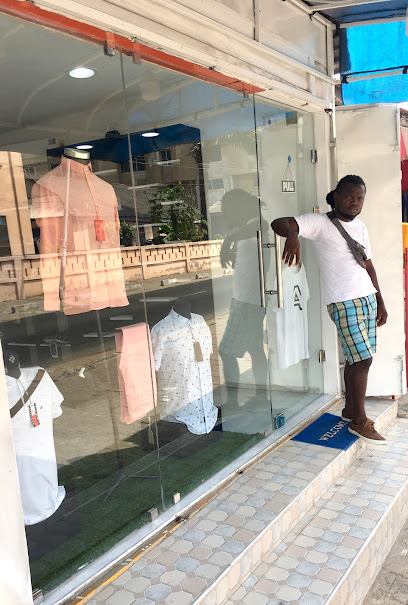
Maketa boutique
Explore the vibrant fashion of Ghana at Maketa Boutique, where local artistry meets contemporary design in the heart of Accra.
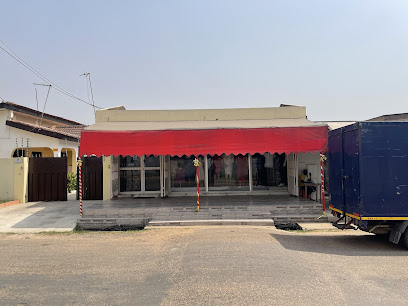
Essential bars & hidden hideouts
The Republic Bar & Grill
Discover the vibrant tastes of Accra at The Republic Bar & Grill, where local flavors meet a lively bar ambiance.
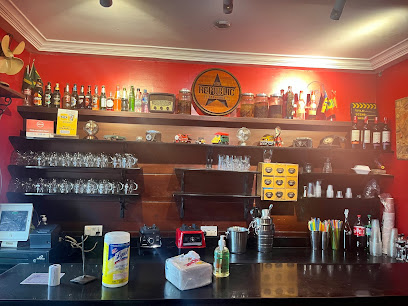
Purple Pub Osu
Discover the vibrant nightlife at Purple Pub Osu in Accra, a lively pub offering signature cocktails and a welcoming atmosphere for all.
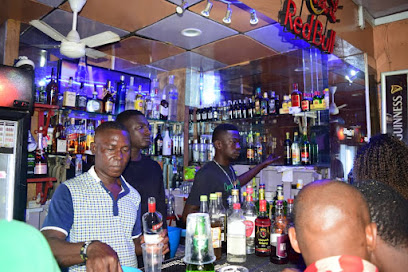
Bloom Bar
Experience the vibrant nightlife at Bloom Bar in Accra, where exciting drinks and a lively atmosphere await every visitor.
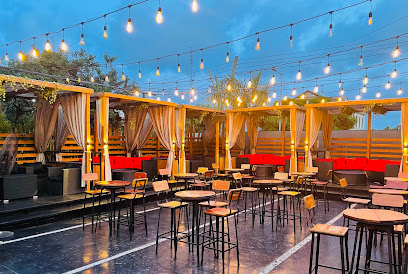
Kona
Experience the vibrant flavors and lively atmosphere at Kona, Accra's premier grill and lounge destination for unforgettable dining and nightlife.
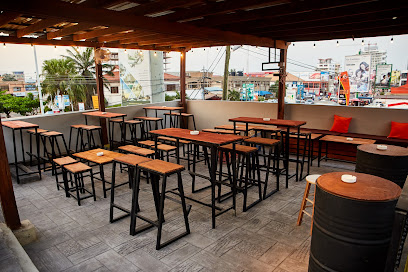
Alley Bar
Experience the vibrant nightlife of Accra at Alley Bar, where local culture meets a lively atmosphere for an unforgettable evening.
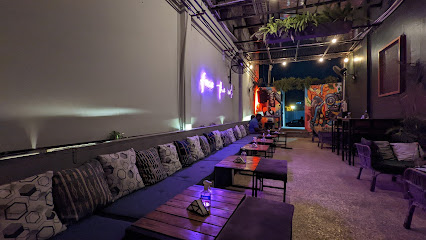
Ry-mix Bar
Discover the vibrant nightlife of Accra at Ry-mix Bar, a local favorite for drinks, music, and unforgettable moments.

Flipbar
Experience the vibrant nightlife at Flipbar in Accra, where local culture meets lively entertainment in a welcoming atmosphere.
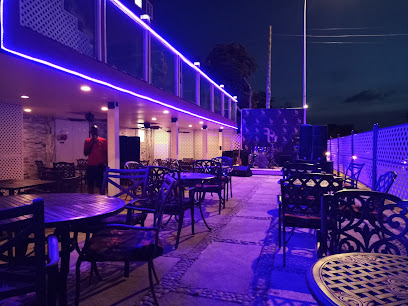
Osu Beach Bar
Discover the lively Osu Beach Bar in Accra, where affordable drinks meet a vibrant atmosphere and stunning coastal views.
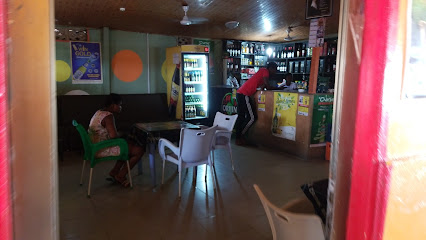
CORKS LOUNGE - Osu
Experience the vibrant nightlife of Accra at Corks Lounge in Osu, offering a stylish atmosphere and an extensive drink menu.
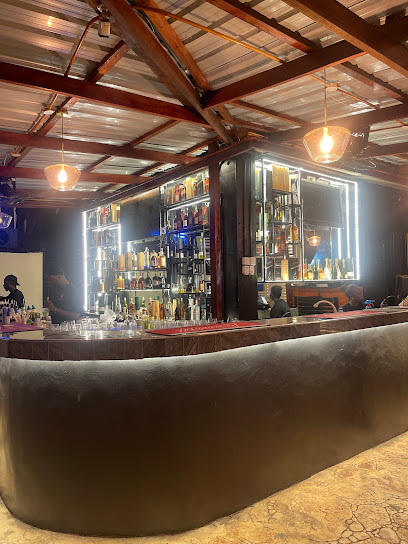
Bob's shawama and bar
Experience the lively atmosphere and mouth-watering shawarma at Bob's Shawarma and Bar in Accra, a favorite among locals and travelers alike.
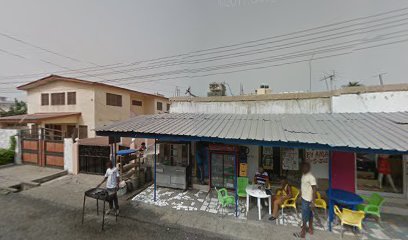
Local Phrases
-
- HelloAane
[ah-neh] - GoodbyeKaa kyerɛ
[kaa che-reh] - YesAane
[ah-neh] - NoDaabi
[daa-bee] - Please/You're welcomeMepa wo kyɛw
[meh-pah woh che-wuh] - Thank youMedaase
[meh-daa-seh] - Excuse me/SorryƐte sɛn
[eh-teh sen] - How are you?Wo ho te sɛn?
[woh ho teh sen?] - Fine. And you?Mihuu. Na wo ho?
[mee-hoo. nah woh ho?] - Do you speak English?Wo ka Twi?
[woh kah tree?] - I don't understandMinni nkyerɛ
[me-nee en-cher-eh]
- HelloAane
-
- I'd like to see the menu, pleaseMepɛ menu atwa, meserɛ wo
[meh-peh meh-noo at-wah, meh-seh-reh woh] - I don't eat meatMenni ntontom
[men-nee en-ton-tom] - Cheers!Afehyia pa
[ah-feh-hee-yah pah] - I would like to pay, pleaseMepɛsɛ, meserɛ wo
[meh-peh-seh, meh-seh-reh woh]
- I'd like to see the menu, pleaseMepɛ menu atwa, meserɛ wo
-
- Help!Boa me
[bo-ah meh] - Go away!Nnyɛ foforo
[nnyeh foh-foh-roh] - Call the Police!Bɔ so abɔfo
[boh soh ah-boh-foh] - Call a doctor!Bɔ so dokita
[boh soh doh-kee-tah] - I'm lostMe yɛ dɔe
[meh yeh doh-eh] - I'm illMe yɛ ɔha
[meh yeh oh-hah]
- Help!Boa me
-
- I'd like to buy...Mepɛ de
[meh-peh deh] - I'm just lookingMehu asɛm
[meh-hoo ah-sehm] - How much is it?Ɔyɛ de sɛn?
[oh-yeah deh sen?] - That's too expensiveƐyɛ de biara
[eh-yeah deh bee-ah-rah] - Can you lower the price?Wo pɛ de bɛkɔ sɛn?
[woh peh deh beh-ko sen?]
- I'd like to buy...Mepɛ de
-
- What time is it?Ɛdeɛn ne sɛn?
[eh-den neh sen?] - It's one o'clockƆkan ho
[oh-kan ho] - Half past (10)Nya Ahoɔfɛ (10)
[nyah ah-hoh-feh (10)] - MorningAnɔpa
[ah-noh-pah] - AfternoonAwia
[ah-wee-ah] - EveningAnwummere
[ahn-woom-meh-reh] - YesterdayNnwida
[nny-wee-dah] - TodayƐda mu
[eh-dah moo] - TomorrowƐna mu
[eh-nah moo] - 1Bere
[beh-reh] - 2Aforo
[ah-foh-roh] - 3Afi
[ah-fee] - 4Anan
[ah-nahn] - 5Anum
[ah-noom] - 6Afie
[ah-fee-eh] - 7Ason
[ah-sohn] - 8Awɔtwe
[ah-woh-tweh] - 9Anidaso
[ah-nee-dah-soh] - 10Yɛn
[yehn]
- What time is it?Ɛdeɛn ne sɛn?
-
- Where's a/the...?Ɛhe a...
[eh-heh ah...] - What's the address?Ɛdeɛn ne nsohwee?
[eh-den neh en-soh-wee?] - Can you show me (on the map)?Wo pɛ sɛ wotwaa m'atwa?
[woh peh seh woh-twah mah-twa?] - When's the next (bus)?Anka ade bi?
[ahn-kah ah-deh bee?] - A ticket (to ....)Akwatere (ka ....)
[ah-kwah-teh-reh (kah ....)]
- Where's a/the...?Ɛhe a...
History of Osu
-
Osu's history dates back to the 15th century when it was a traditional Akan settlement. The area was a significant part of the Ga-Dangme kingdom, which played a pivotal role in the socio-political landscape of coastal Ghana. Osu was known as 'Otu,' meaning 'the place of the people,' and served as a crucial trading hub for the Ewe and Akan peoples, facilitating the exchange of goods and culture.
-
In the late 19th century, Osu became a focal point during the colonial era as the British established control over the Gold Coast. The construction of Fort Christiansborg in the 17th century, which later served as a seat of colonial administration, marked Osu as a strategic military and trade post. This fortification symbolized the European colonial ambition and had lasting impacts on the local populace and governance.
-
Osu is renowned for its rich cultural heritage, particularly linked to the Ga people. The vibrant Osu Castle served as the seat of the Danish colonial government and later as a prison. The area is also famous for its annual Homowo festival, which celebrates the Ga people’s history and agricultural bounty, drawing visitors who wish to witness the colorful displays of tradition, music, and dance.
-
Following Ghana's independence in 1957, Osu transformed into a cosmopolitan neighborhood, reflecting the nation's diverse culture. It became a center for political activity and social change, hosting gatherings that contributed to Ghana's democratic evolution. The area has since developed into a vibrant social hotspot, with numerous restaurants, bars, and shops that reflect both local and international influences.
-
In recent years, Osu has evolved into an artistic and commercial hub within Accra. The neighborhood is home to a multitude of art galleries, craft shops, and cultural institutions that celebrate Ghanaian artistry. Osu's Oxford Street is a bustling commercial center, symbolizing the dynamic blend of tradition and modernity, attracting both locals and tourists alike.
Osu Essentials
-
Osu is located approximately 5 kilometers from central Accra, making it easily accessible from various neighborhoods. From Kotoka International Airport, taxis and ride-hailing services like Uber are available, taking around 15-20 minutes to reach Osu. If you're coming from other neighborhoods, local taxis and shared minibuses (trotros) are the most common means of transportation. Simply tell the driver your destination, and they will drop you off near major landmarks in Osu.
-
Osu is relatively small and can be explored on foot, allowing visitors to soak in the local atmosphere. For longer distances, taxis and shared minibuses are available. Bicycle rentals are also an option for the more adventurous, and several local shops offer these services. Ride-hailing apps like Uber and Bolt are widely used and provide a convenient way to navigate the area.
-
Osu is generally safe for tourists, but standard precautions should be taken. Avoid walking alone at night in poorly lit areas, particularly around the beachfront and unlit streets. Be vigilant in crowded places to deter pickpockets, especially at markets and bus stops. Areas of concern may include the vicinity of the Osu Castle, where petty crimes can occur; it is advisable to stay alert and travel in groups when possible.
-
In case of an emergency, dial 112 for police assistance or 192 for medical emergencies in Ghana. Familiarize yourself with the location of the nearest hospital, such as the 37 Military Hospital. It is advisable to have travel insurance that covers emergencies. For minor health issues, local pharmacies can provide over-the-counter medications.
-
Fashion: Do dress modestly, especially when visiting markets or religious sites. Avoid overly revealing clothing. Religion: Do respect local beliefs. When entering a place of worship, dress appropriately, and observe any customs. Public Transport: Do be courteous and offer your seat to the elderly. Don't eat or drink on public transport. Greetings: Do greet locals with a friendly handshake. A polite nod is also appreciated. Eating & Drinking: Do try local dishes and accept invitations to share meals. Don't refuse food, as it may be seen as impolite.
-
To experience Osu like a local, visit the vibrant Osu Oxford Street for shopping and street food. Engage in conversations with local vendors at the Osu Market, where you can find fresh produce and unique crafts. Don't miss the chance to try Waakye (rice and beans) or Jollof Rice from local eateries. Join in community events or live music nights at local bars to immerse yourself in the cultural vibe of Osu.
Trending Landmarks in Osu
-
Kwame Nkrumah Memorial Park & Mausoleum
-
W.E.B Du Bois Memorial Centre for Panafrican Culture - Ghana.
-
National Museum of Ghana
-
Osu Castle
-
Osu Night Market
-
Independence Arch
-
Akola Boni Park
-
Independence Square | Black Star Square
-
Statue Of Kwame Nkrumah
-
Independence square
-
Osu beach
-
Liberation Day Monument
-
Emmanuel Villa Osu
-
WORLD WAR MONUMENT
Nearby Cities to Osu
-
Things To Do in Koforidua
-
Things To Do in Cape Coast
-
Things To Do in Ho
-
Things To Do in Lomé
-
Things To Do in Kpalimé
-
Things To Do in Sekondi-Takoradi
-
Things To Do in Takoradi
-
Things To Do in Kumasi
-
Things To Do in Aneho
-
Things To Do in Notse
-
Things To Do in Lokossa
-
Things To Do in Atakpamé
-
Things To Do in Ouidah
-
Things To Do in Cotonou
-
Things To Do in Sunyani








